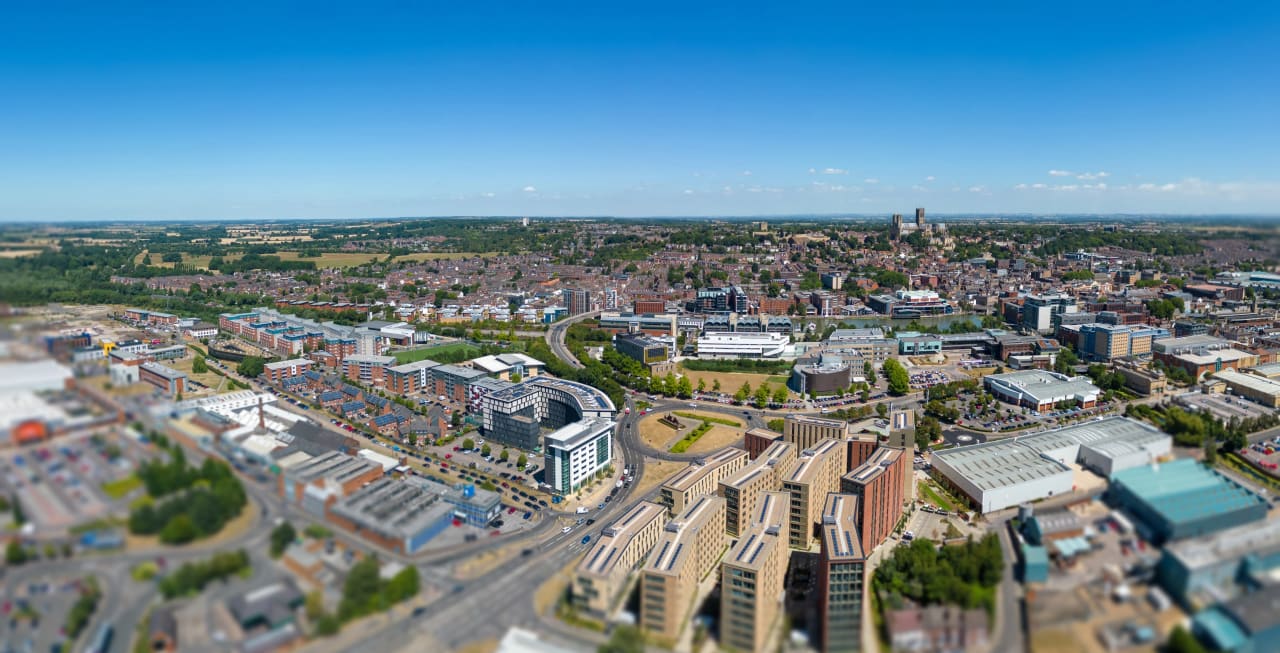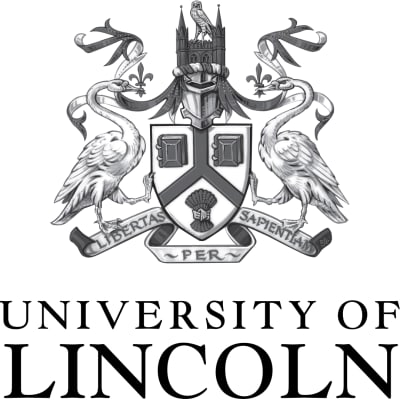
BSc (Hons) Chemistry for Drug Discovery and Development
University of Lincoln

Key Information
Campus location
Lincoln, United Kingdom
Languages
English
Study format
On-Campus
Duration
3 years
Pace
Full time
Tuition fees
Request info
Application deadline
Request info *
Earliest start date
Request info
* late applications will be considered if suitable vacancies remain
Discover Lincoln Wherever You Are in the World
Our webinars, subject masterclasses, question and answer sessions, and student panel talks are a great way to discover what it is like to live and study at the University of Lincoln.
Introduction
Join the fight against disease by learning how to create better and safer drugs for society with a degree in Chemistry for Drug Discovery and Development.
Our BSc (Hons) Chemistry for Drug Discovery and Development aims to develop skills in the design and development of active molecules, all the way through to the final pharmaceutical products available to patients. Students can gain knowledge of synthetic chemistry and develop experience in drug formulation and manufacture within the regulatory context of the pharmaceutical industry. This will involve the substantial practical experience of advanced laboratory techniques.
In this programme, students have the opportunity to develop a comprehensive knowledge of chemistry alongside subject-specific and generic skills to develop a strong understanding of how chemistry is applied to problems with a direct impact on society. Our programmes are designed to produce highly employable graduates with a broad background in academic chemistry and significant experience in the application of chemistry in contexts relevant to society and industry.
"This information was correct at the time of publishing (July 2023)"
Admissions
Curriculum
How You Study
The programme takes an integrated approach to organic, inorganic, and physical chemistry, exploring how they work together.
Students have the opportunity to focus initially on organic, inorganic and physical chemistry through an integrated approach that emphasises connectivity. Laboratory workshops and extensive use of specialist equipment provide the chance for students to develop hands-on skills.
Later in the course, students can apply their experience to a range of real-world applications, including industry-informed interdisciplinary projects. A significant research project also aims to develop students in a specialism of their choice. Throughout the course, there is an emphasis on developing the professional skills required for a future career in the industry.
The course includes lectures, seminars, laboratory-based practical classes, and lectures from visiting scientists. Extensive small-group teaching and innovative team-based learning aim to create a supportive learning environment to help students train through practice and problem-based approaches.
First Year
- Core Chemistry 1.1: Introduction to Energy, Change and Electronic Structure (Core)
- Core Chemistry 1.2: Molecular Structure, Bonding and Mechanism (Core)
- Introduction to Pharmaceutical Science (Core)
- Introduction to Professional Practice (Core)
- Practical Chemistry 1.1: Fundamental laboratory techniques (Core)
- Practical Chemistry 1.2: Introduction to synthetic methodologies and molecular characterisation (Core)
- Professional Practice 1: Analytical Sciences (Core)
Second Year
- Core Chemistry 2.1: Stability, Structure and Mechanism in Molecular Systems (Core)
- Core Chemistry 2.2: Chemistry of Activated Systems and Radicals (Core)
- Drug Formulation and Delivery (Core)
- Fundamentals of Pharmacology & Toxicology (Core)
- Practical Chemistry 2.1: Organic synthesis, purification and advanced characterisation (Core)
- Practical Chemistry 2.2: Inorganic synthesis and structural methods (Core)
- Professional Practice 2.2: Pharmaceutical Sciences (Core)
Third Year
- Biological Chemistry (Core)
- Business, Regulation and Ethics for the Pharmaceutical Scientist (Core)
- Core Chemistry 3.1: Defining Shape, Symmetry and Stereochemistry (Core)
- Core Chemistry 3.2: Heterogeneous Systems, Surfaces and Nanoscience (Core)
- Practical Chemistry 3.1: Advanced techniques in IO-chemistry (Core)
- Structured project (Core)
† Some courses may offer optional modules. The availability of optional modules may vary from year to year and will be subject to minimum student numbers being achieved. This means that the availability of specific optional modules cannot be guaranteed. Optional module selection may also be affected by staff availability.
How You Are Assessed
The way students are assessed in this course may vary for each module. Examples of assessment methods that are used include coursework, such as written assignments, reports or dissertations; practical exams, such as presentations, performances or observations; and written exams, such as formal examinations or in-class tests. The weighting given to each assessment method may vary across each academic year. The University of Lincoln aims to ensure that staff return in-course assessments to students promptly.
Gallery
Program Outcome
How You Study
The programe takes an integrated approach to organic, inorganic, and physical chemistry, exploring how they work together.
Students have the opportunity to focus initially on organic, inorganic and physical chemistry through an integrated approach that emphasises connectivity. Laboratory workshops and extensive use of specialist equipment provides the chance for students to develop hands-on skills.
Later in the course, students can apply their experience to a range of real-world applications, including industry-informed interdisciplinary projects. A significant research project also aims to develop students in a specialism of their choice. Throughout the course, there is an emphasis on developing the professional skills required for a future career in industry.
The course includes lectures, seminars, laboratory-based practical classes, and lectures from visiting scientists. Extensive small-group teaching and innovative team-based learning aims to create a supportive learning environment to help students train through practice and problem-based approaches.
Scholarships and Funding
For eligible undergraduate students going to university for the first time, scholarships and bursaries are available to help cover costs. The University of Lincoln offers a variety of merit-based and subject-specific bursaries and scholarships.
Several scholarship options are available. Please check the university website for more information.
Program Tuition Fee
Career Opportunities
Chemistry graduates may pursue a wide range of science-related careers in sectors including energy, petrochemicals, pharmaceuticals, and consumer and personal care products. Those with specialisms in drug discovery and development can also aim for careers in the pharmaceutical and biotechnology sectors. This can involve positions in molecular diagnostics, bioanalysis, and immunology. Some graduates may choose to continue their studies at postgraduate level.